Beautiful dock spider (Ontario Canada) arachnids
Dolomedes / dɒləˈmiːdiːz / is a genus of large spiders of the family Pisauridae. They are also known as fishing spiders, raft spiders, dock spiders or wharf spiders. Almost all Dolomedes species are semiaquatic, with the exception of the tree-dwelling D. albineus of the southeastern United States.

dock spider with egg sack Canada's largest spider Flickr
The dock spider, or Dolomedes, is a member of the Pisauridae family. In the United States, the dock spider is often called a fishing spider. Wharf spider and raft spider are other common names for these arachnids. Here are five interesting facts you should know about dock spiders. Dock spider habitat and range
Dock spider(Dolomedes) largest breed of spider in Canada. The planks on
The dock spider, a member of the genus Dolomede s, is found primarily in wet environments. In Canada, dock spiders are commonly seen in and near lakeside homes, cabins, and cottages. Dock spiders, sometimes known as wharf spiders, can be readily mistaken for the much more dangerous and poisonous wolf spiders.

Canada's largest spidersittin' on the dock of the bay Dock of the
A dock spider emerging from its lair is a familiar lakeside sight—and it's enough to make anyone want to dive directly into the water. But instead of getting squeamish about cottage country's most famous arachnids, here are 10 reasons we should be celebrating them. They're Canada's largest spiders

Dock Spider in Ottawa YouTube
The Enigmatic Dock Spiders: Guardians of Waterfronts and Nature's Allies. Dock spiders, also known as a wharf, dock spiders, canada's, or fishing spiders, are fascinating creatures that often remain misunderstood. We have debunked the misconception of their venomous nature, discovering that they pose minimal risk to humans.

10 amazing facts about dock spiders Cottage Life
Dock spiders are widely distributed throughout cottage country in Canada and the United States. Whether your cabin is in Michigan, Wisconsin, Minnesota, Manitoba, Ontario, Quebec or any other lake-country area the dock spider is a regular and feared companion at the cottage.
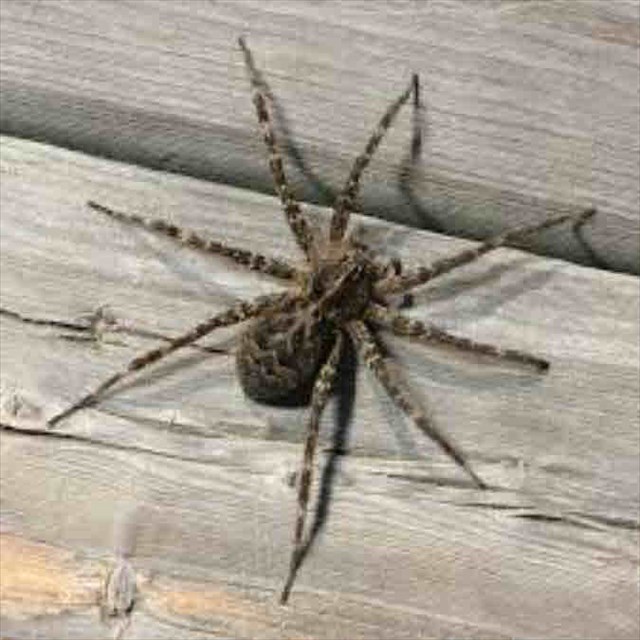
GC6F9RT K & P Insects Dock Spider (Unknown Cache) in Ontario, Canada
By OliverGraphics.ca/Shutterstock No cottage arachnid is more iconic than the dock spider. Canada's largest eight-legged beast is about the same width as a CD (remember those?), and an expert bug hunter. Despite the name, these spiders mainly stick to the surface of lakes, ponds, and streams, preying on insects.
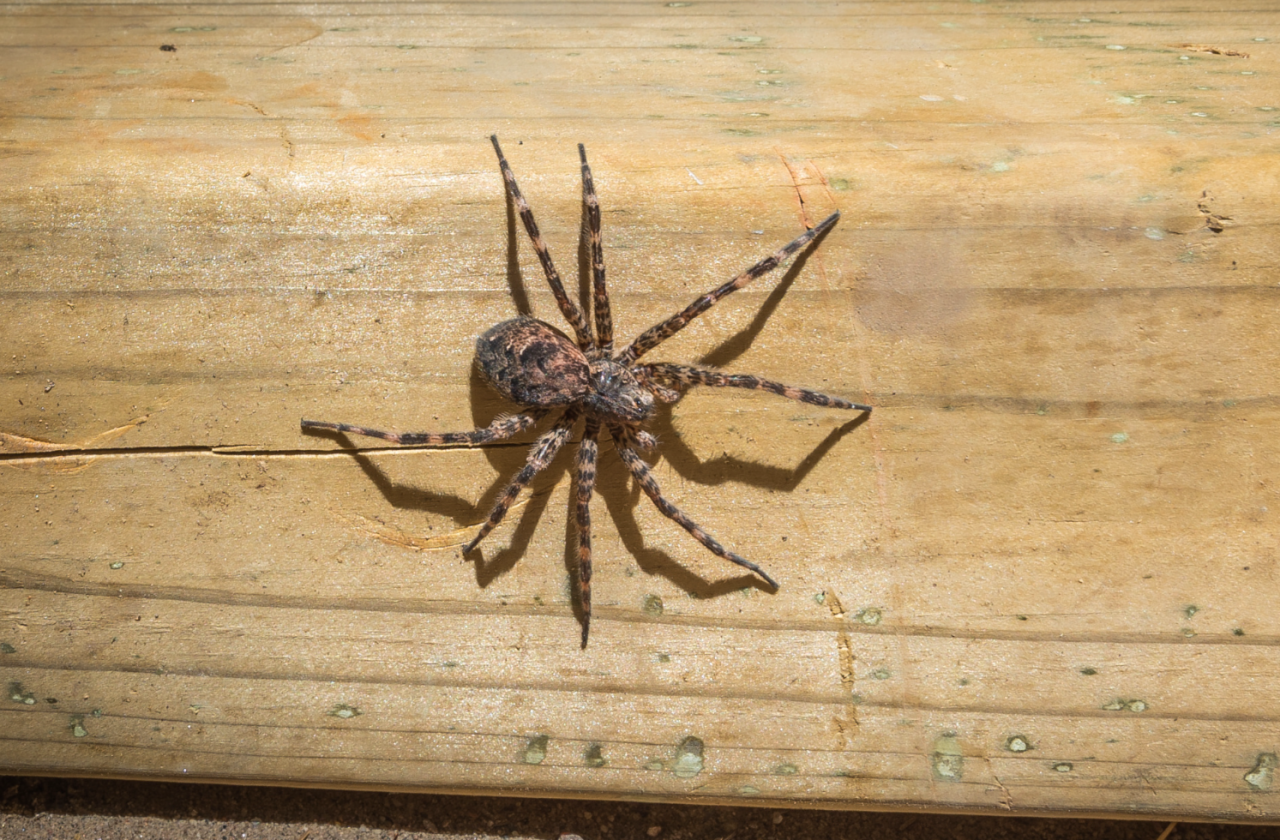
Five Facts About Canada’s Dock Spider Northern Latitudes
Dock spiders are one of the largeer spiders native to Canada and a female dock spider could easily cover an adult human hand. Notes Dock spiders have water resistant legs which enables them to walk and glide on top of water. General Facts Why do I have dock spiders? How worried should I be about dock spiders?

Canada’s largest spider …sittin’ on the dock of the bay Arthropod Ecology
Dock spiders feed on water insects, tadpoles, minnows, and frogs. They are capable of catching and eating prey five times larger than themselves and are one of the few spider species that can feed on vertebrates, albeit relatively small ones. A dock spider that is hunting for food rests its front legs on the water while dangling over the surface.
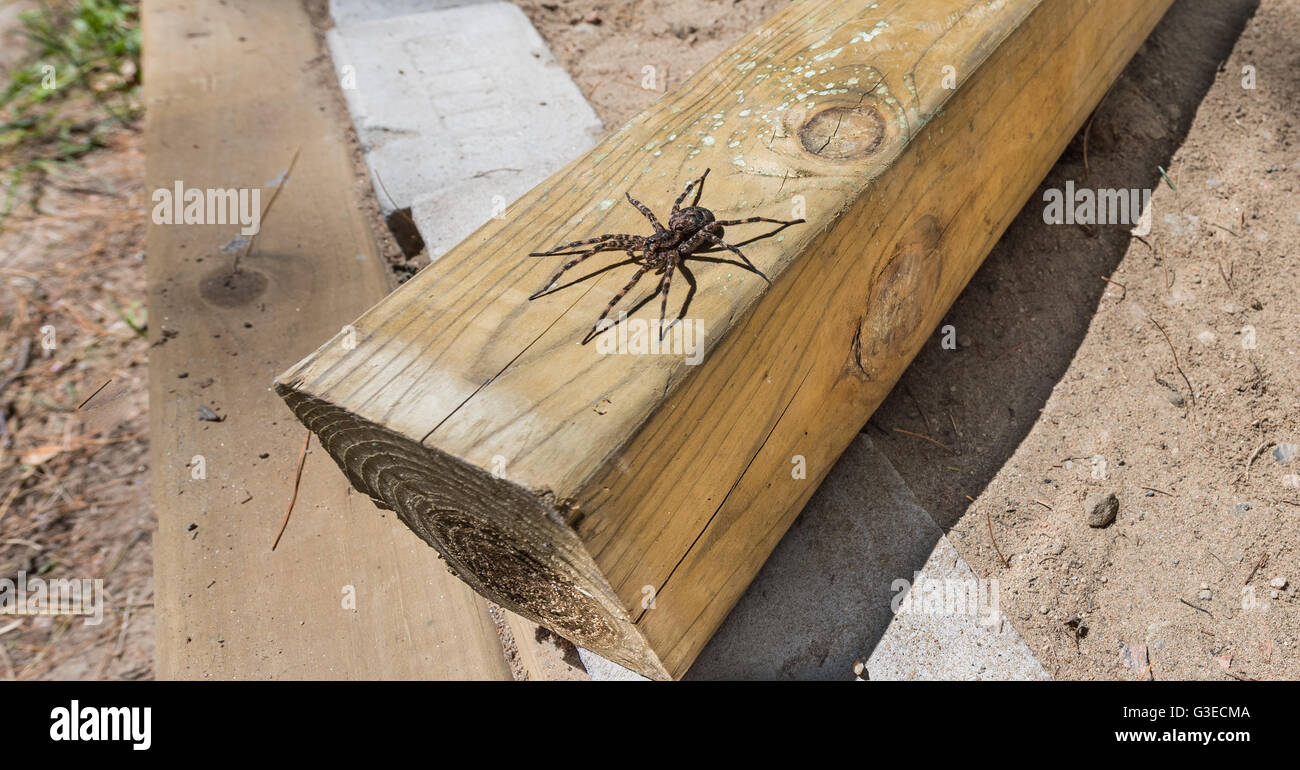
Canada’s largest spider (Dock spider) sitting on a piece of 4x4 lumber
The best places to find crab spiders in Canada are near flowers. Crab spiders don't use webs to catch their prey. Instead, they sit and wait inside flowers or other vegetation low to the ground for something to eat.. Dock Spiders, or Wharf Spiders. Identifying Characteristics: Both sexes can vary in color; some are brown, black, or cream.
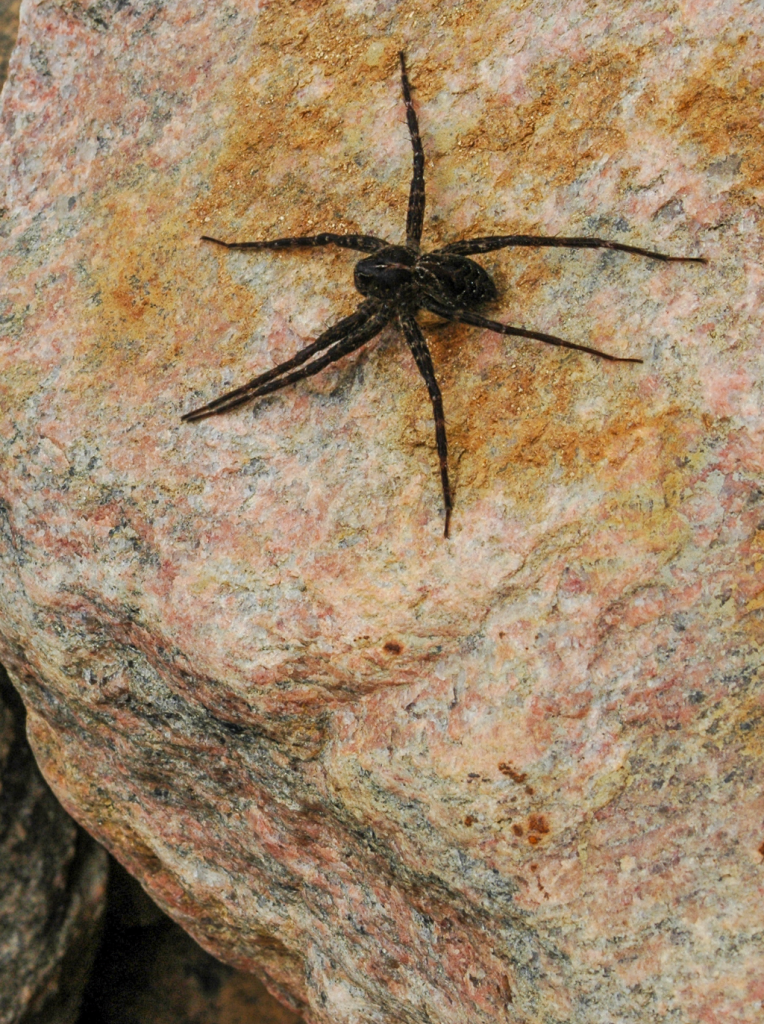
Five Facts About Canada’s Dock Spider Northern Latitudes
A dock spider extends its front legs on the water and feels for vibrations caused by a moving prey or an insect that has fallen in the water. The hair plays a large role in detecting these tiny vibrations and the eyes help locate the prey. Their prey includes insects, tadpoles, and smaller fish.
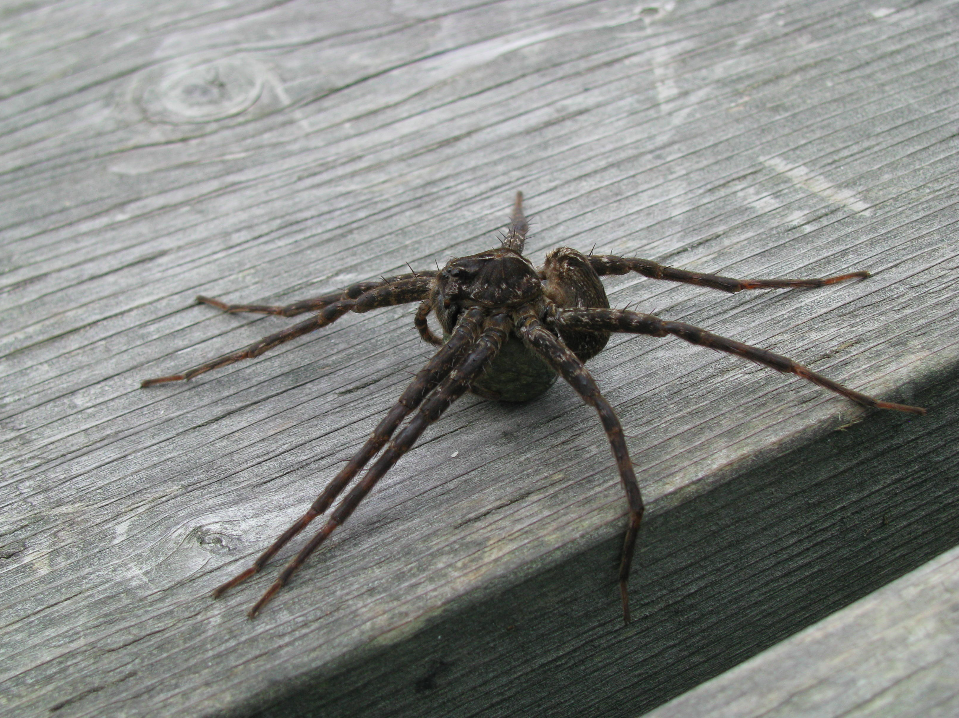
10 Facts On Your Friend, The Dock Spider FACES Magazine
Two species, Dolomedes tenebrosus and Dolomedes scriptus are the common 'dock spiders' These spiders, especially the full-grown females, are the largest (native) spider species in Canada They are commonly known as nursery-web spiders, as females build a silken, tent-like 'nursery' for their spiderlings

Dock spider 1 Canadian Freebird Flickr
Dock spiders are one of the most common types of spiders found in and around homes in rural areas. Also called fishing spiders, they prefer to live in areas near water, such as docks and piers. While they are not particularly aggressive and generally avoid people, they can provide a fright at first sight if you are not familiar with them.
Dock Spider Dolomedes Tenebrosus? Found just South of Parry Sound
I found a frozen Canadian dock spider AKA fishing spider on the ice while ice skating here a couple spider facts about this Canada's largest spider #markhogb.
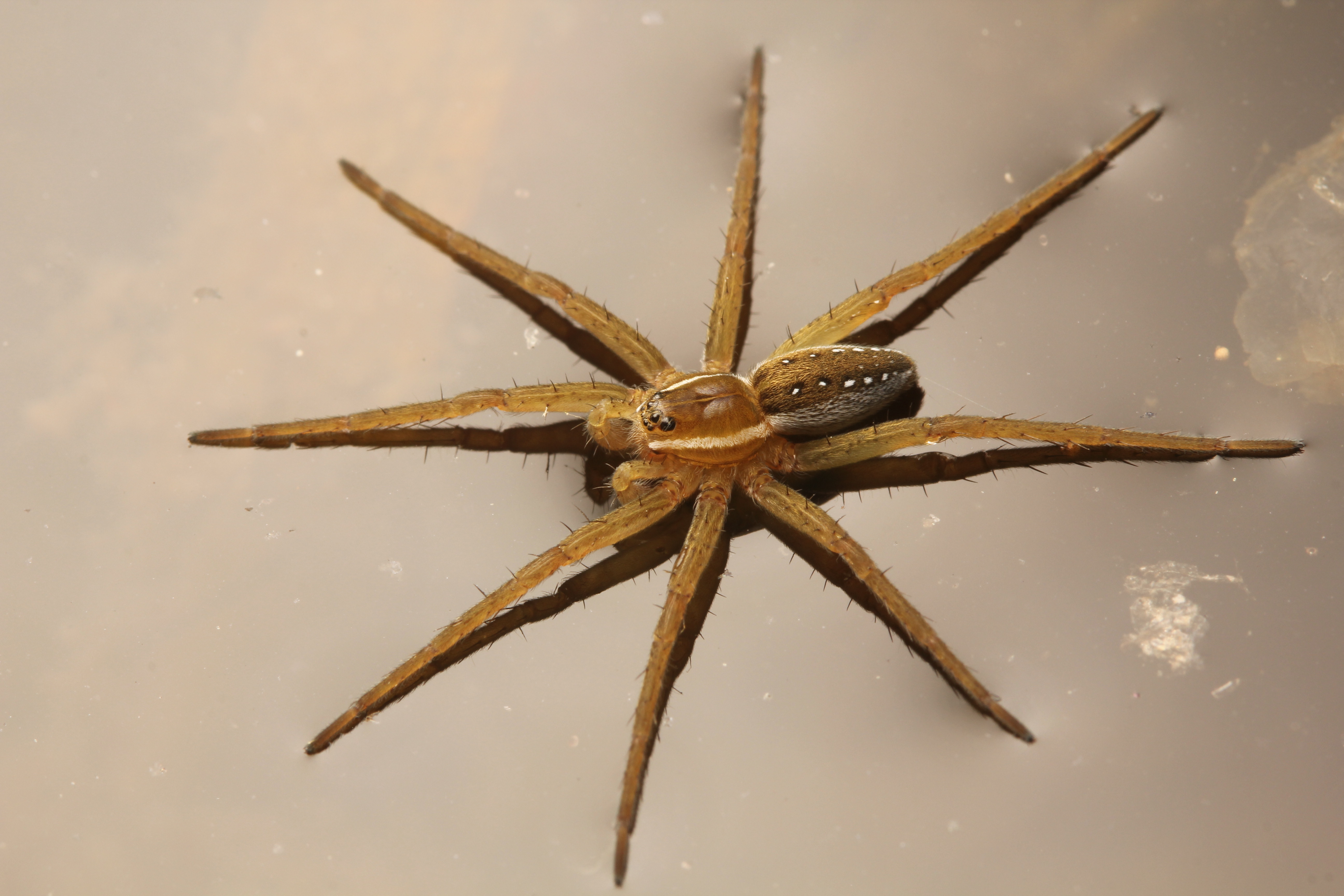
Dock spider spiderbytes
The Dock Spider, also known as a Fishing Spider, is one type of animal the ROM gathered from Ontario in order to milk its venom.. ON Canada, M5W 1E6. Toll-free (Canada only): 1-866-306-4636.

Female dock spider Spider, Arachnids, Insects
Dock spiders are the largest in Canada. Females can grow to be more than 3.5 inches in length. . 2. Although they can also be found on cabins, sheds and outhouses, dock spiders are typically found on docks because it's their best hunting ground. . 3. The ones you find on docks are usually female. . 4. Dock spiders use venom to paralyze their prey.